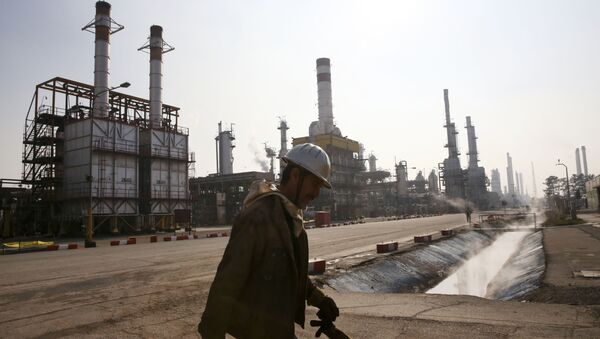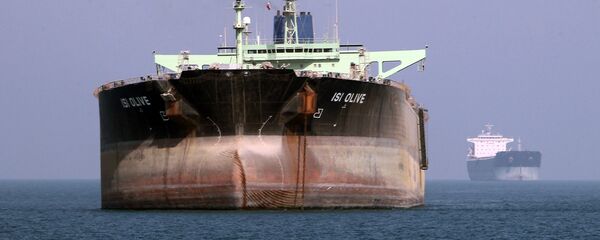As it was reported earlier, Saudi Arabia, the largest exporter of the oil cartel, expressed readiness to sign an agreement on freezing oil extraction without Iran's participation.
Without waiting for guarantees from the Iranian side, Saudi Arabia decided to ‘tighten the nuts’. Henceforth, Iranian oil tankers are denied entry into the territorial waters of the Saudi Kingdom.
According to The Financial Times, referring to the oil brokers and ship brokers, the tankers that had previously docked in the Iranian ports are permitted to enter the territorial waters of Saudi Arabia only upon obtaining a special permit.
Can the Saudi’s port closure cause serious damage to Iran's oil industry? In an interview with Sputnik Persian, an independent Iranian expert and economist from London, Manouchehr Takin, said, “For the Iranian oil tankers Saudi’s ban will not cause much harm. After loading at the Strait of Hormuz they may come into free international waters. However, for tankers that load oil from several places, certain difficulties will be created. These vessels have to first load oil in other countries and then reach Iran.”
The expert further said that this is a politically motivated move. Although he added that, “It will not cause much damage to the Iranian oil industry.
In this case, Iran will only need to adjust the logistics policy: routes of tankers. Iran will hold talks with its customers regarding sending tankers via a different route: through Iranian territorial waters. New mechanism of handling the fuel and devising an unloading scheme will take a few weeks longer than usual.”
Takin said that Iran was seriously expressing its willingness and desire for peaceful economic cooperation with the states of the Persian Gulf.
“Iranian Foreign Minister Dr. Mohammad Javad Zarif has repeatedly called on saying that political differences should not affect the healthy trade partnership in the oil sector. But some states have taken a hostile attitude towards Iran. It has left its mark on the political factor,” the analyst concluded.


